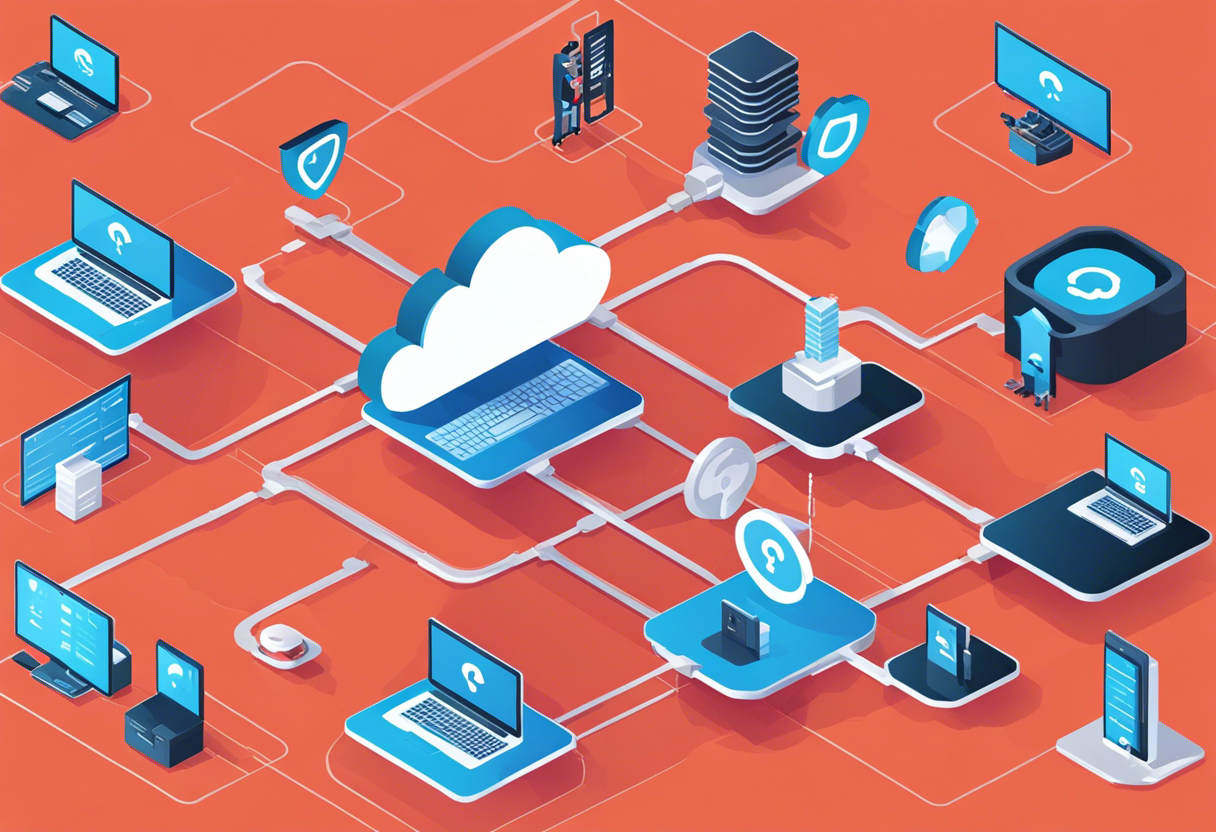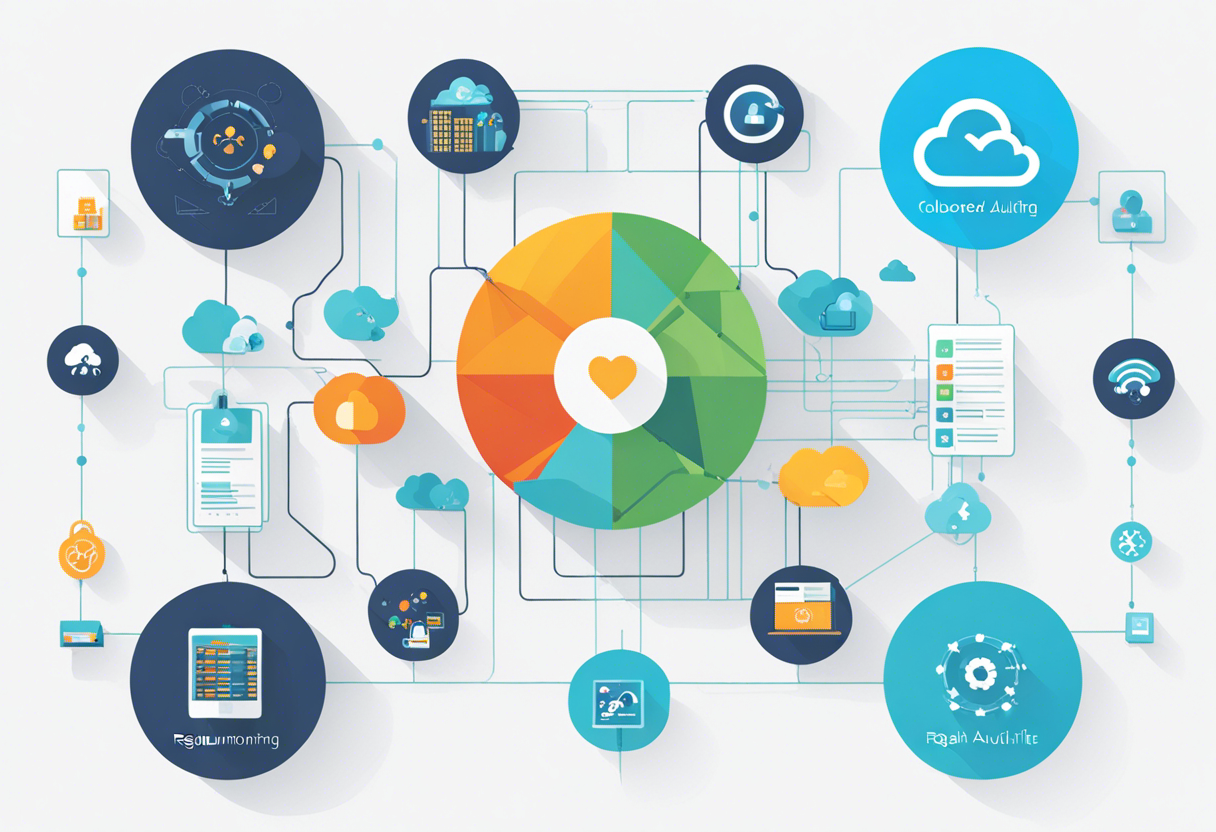Top Three Ironclad Solutions for Securing your Cloud Computing Ecosystem
Often seen as a cornerstone approach, Multi-Factor Authentication (MFA) boosts your cloud security manifold. MFA operates on the principle of multiple layers of protection. Should one layer become compromised, the secondary layer remains to keep the system safe. The layers typically consist of something you know (e.g., passwords), something you have (e.g., a smart card), and something you are (e.g., biometric data).
As businesses increasingly store sensitive data on the cloud, such a robust system becomes crucial. It authenticates user identities at different points in the system, hence considerably reducing chances of unauthorized access. The complexity of bypassing these various stages of verification makes it a formidable defense mechanism.
Implementing MFA, while being moderately cost-effective, scores high on efficiency. However, ensure that potential users are educated about the system. Informed and prepared users can contribute significantly to the effectiveness of MFA.
Robust Data Encryption for Cloud Protection

Transferring your data to the cloud doesn't mean it's out of your hands. Ornament your security strategy with a crucial safeguard - data encryption. When the data is unintelligible to unauthorized users, the risk of data leaks and hacks drastically reduces.
There are two types of encryption: at-rest encryption, which secures stored data, and in-transit encryption, which secures data as it moves between locations. Employing both types will help ensure the security of data at all stages. Use strong encryption standards like AES or RSA with sufficiently large key sizes to increase the difficulty level for decryption.
The catch with encryption is that it's often not user-friendly. So, it’s vital to strike a balance between data accessibility and securing the encrypted data from potential breaches. Address this by training the staff about encryption and its benefits.
Leveraging Security-Focused Cloud Service Providers
Not all cloud services are built equal, and some providers prioritize security more than others. Choosing the right provider can substantially add to your cloud ecosystem's overall security. Look for providers who offer strong data encryption - both at rest and in transit, have a secure data center, run regular security audits, and provide effective disaster recovery options.
However, while a security-focused provider can offer several necessary cloud protection mechanisms, it's no replacement for internal IT security procedures. The company's cybersecurity team should work closely with the provider to ensure seamless integration with their current security measures.
Onboarding the right provider also means consistency in updates and upgrades, ensuring your data's security is never compromised due to outdated technologies. Hence, diligent research followed by a strategic partnership could be your best shield against possible security breaches.
Regular Audits and Monitoring Cloud Activity

Regular audits offer an insightful understanding of your cloud ecosystem's security health. They help in identifying potential pitfalls and vulnerabilities. The audits should encompass user activities, data transfer and storage patterns, and system configurations.
Regular monitoring is equally critical to keep an eye on possible unauthorized activities. Employ a system for detecting suspicious behavior and set triggers based on thresholds, unusual activity, or even time of access.
Further, using AI-based intuitive systems can help automatically flag deviant behavior, making monitoring more effective and simple. While conducting audits and monitoring can be labor-intensive, it increases the precision of your security strategy and keeps you one step ahead in securing your cloud computing ecosystem.
